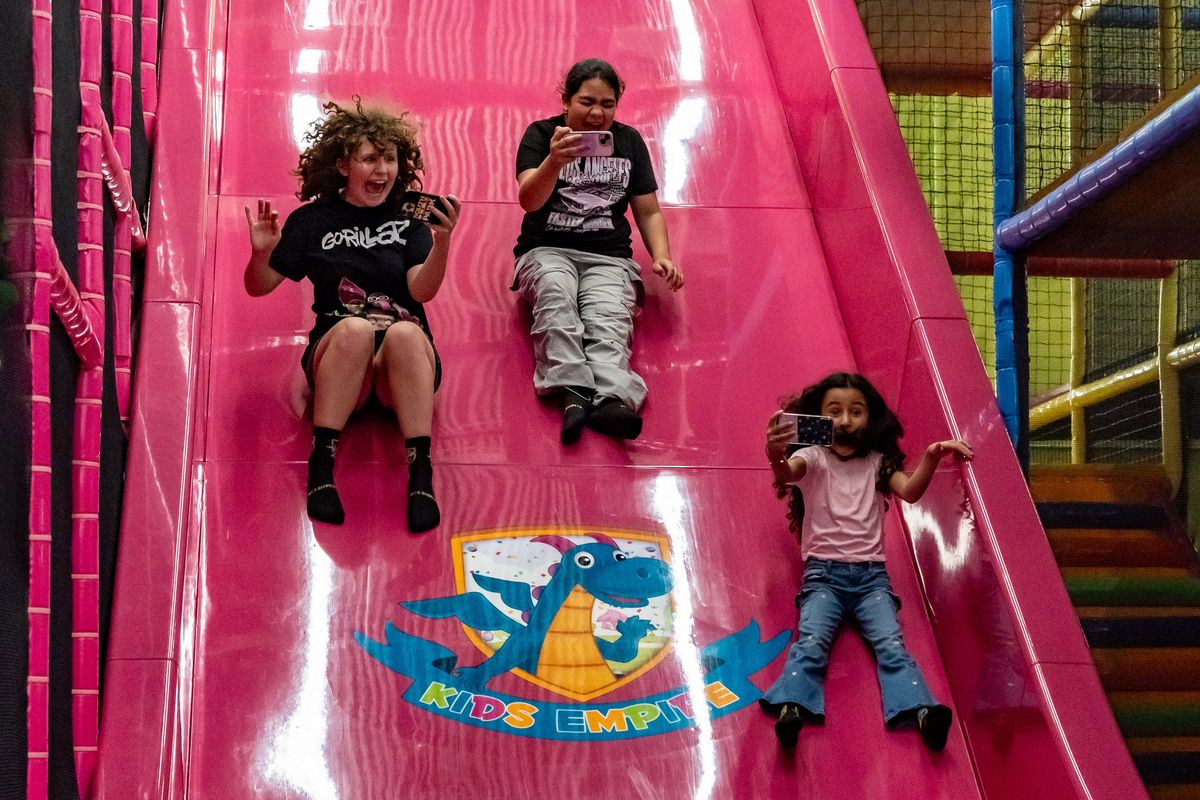Imagine this scenario: You’re late to an appointment and your apartment is a disaster.
Clothes are strewn about, your phone could be in the bathroom, your keys are somewhere in the kitchen, and there’s no sign of your wallet.
Sound familiar?
Well, for an entrepreneur who’s trying to move their business forward, the tons of information out there, especially on the internet, can be overwhelming to sift through — just as challenging as it is for you to find your phone, keys, wallet, and clean clothes when you’re in a rush.
To be successful with your business, it helps to seek out and understand certain data, like competitor pricing, tax demands, news on technological advances, as well as many other things you might not even be aware of.
That’s where Go Code Colorado comes in.
This is a government-sponsored competition that brings entrepreneurs, business partners, and developers together to come up with ways to make the best use of the information that’s available.
Hashtagitude/Go Code Colorado
As the first and only statewide effort like it, Go Code Colorado features a series of networking and collaboration events that take place every year.
Teams from all over Colorado meet with mentors to develop ideas on how to best use public info. They then turn those ideas — in the form of apps and other software — over to judges.
And it’s a great time for something like this to exist because many new laws have passed — on the state and federal level — that make more government data accessible to the public, increasing transparency and helping various organizations in new ways.
“We think that public data can be an asset to business decision makers,” says Andrew Cole, project manager of Go Code Colorado.
Hashtagitude/Go Code Colorado
“Open data has a little something for everyone,” he adds, from big cities to small business owners.
Cole studied politics at Regis University, graduating in 2005, and logged in four years of work in various capacities on Capitol Hill. But now he’s immersed himself in Colorado’s burgeoning tech industry. Cole has toured the state, meeting with people from both urban and rural areas. In particular, he’s also learned how many people are using data and technology to help them build businesses.
“We have a very vibrant startup scene with really smart, creative people who can do cool things with data,” Cole explains. “But they don’t often think of public data as a resource, and there’s a lack of understanding where you might get data, who to ask for it, and how.”
Go Code Colorado is changing that by encouraging people to think more creatively about how to use this incredible resource.
Kelly Erin Photography/Go Code Colorado
Both finalists and winners of the competition have gone on to make great things.
For example, in the inaugural Go Code Colorado competition, a company called Beagle Score emerged victorious. (First prize got them a $25,000 contract with the state.) This company developed an app that gathers info geared toward helping an entrepreneur find the best location for their business.
Beagle Score automatically weighs data on area taxes, neighborhood features, infrastructure, success of past businesses, local competition, and more to give a potential business location a grade. The higher the grade, the better the chances for success there.
“Technically, all of the data behind it is public,” Cole says of Beagle Score, “but if you’re a bakery owner, it’s going to be hard to track all that down and find it in its most recent form and bring it all together.”
Though just three team finalists each year are awarded contracts with the state, everyone's a winner in the Go Code Colorado competition.
That's because all the contestants, regardless of the results, get the chance to bounce their ideas off like-minded people.
Jeremy Poland/Go Code Colorado
In the 2015 competition coder Doug Clayton met graphic designer Adam Cochran, and they decided to join forces to develop an app that would alert Colorado travelers to weather and road conditions, while providing them real-time tips on nearby recreation sites and lodging.
Clayton and Cochran’s idea helped them earn a spot at the competition’s “mentoring weekend” where they got the chance to brainstorm ways to take their app to another level. Though their app wasn’t quite built up enough to make it to the next round, they kept working on it after the event.
They’re now in the later stages of development for what they call “skiosks,” which are computer screens set up in various businesses along Colorado roads that inform travelers about ski conditions, travel routes, and attractions. For their innovation, Clayton and Cochran were awarded a five-year contract from the state’s Department of Transportation.
Hashtagitude/Go Code Colorado
“I often get comments like 'I didn’t know the government did cool things like this,'” Cole says.
And it all started with Cole's experiences as a university student. "My Regis education created a habit of continually challenging my own assumptions and considering [a] variety of perspectives," he writes in an email. "This has been a core aspect of my professional success."
And an open mind, curiosity, and creativity is what Go Code Colorado is all about. Each year, this competition inspires more technological advancements, in a way that simplifies the entire data-collecting process and helps businesses flourish.
With public data becoming more transparent, who knows what kinds of innovative ideas will come next?


 Sandra’s granddaughter, E’s daughter, and another friend at an indoor park (July 2025)
Sandra’s granddaughter, E’s daughter, and another friend at an indoor park (July 2025) One of the ladies Sandra sponsored from Venezuela and her partner during Sandra’s first visit to meet her (December 2023)
One of the ladies Sandra sponsored from Venezuela and her partner during Sandra’s first visit to meet her (December 2023) A handwritten note with the words "good job!" on it
A handwritten note with the words "good job!" on it A man smiling
A man smiling A dad with his kid on his shoulders
A dad with his kid on his shoulders Team collaboration and brainstorming session at the office.
Team collaboration and brainstorming session at the office. Man focused on his phone outdoors in casual attire.
Man focused on his phone outdoors in casual attire. Team debate heats up, leaving one member stressed.
Team debate heats up, leaving one member stressed. Office debate: exchanging ideas with passion.
Office debate: exchanging ideas with passion. Im Old Tv Shows GIF by PBS SoCal
Im Old Tv Shows GIF by PBS SoCal  Kelsey Grammer as Dr. Frasier Crane in 1996By US Treasury Dept. Public Domain
Kelsey Grammer as Dr. Frasier Crane in 1996By US Treasury Dept. Public Domain naked matthew broderick GIF
naked matthew broderick GIF  Oprah Winfrey Reaction GIF
Oprah Winfrey Reaction GIF  Ryan Seacrest, television and radio host and producer, hosts the 2016 USO Gala, Washington, D.C., Oct. 20, 2016.via Jim Greenhill from McLean,
Ryan Seacrest, television and radio host and producer, hosts the 2016 USO Gala, Washington, D.C., Oct. 20, 2016.via Jim Greenhill from McLean,